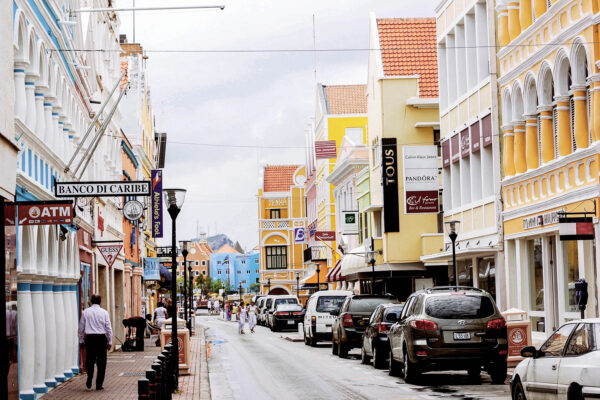
Politicians in the Dutch Caribbean have reluctantly agreed to spending reductions and reforms to qualify for €370 million in financial support from the European Netherlands:
- 25-percent cut in the salaries of politicians.
- 12.5-percent cut in the salaries of other public-sector workers.
- Capping public-sector wages at 130 percent of the prime minister’s salary. (Such an income limit already exists in the European Netherlands.)
- 20-percent contribution from firms to wage subsidies for the unemployed.
- Oversight from the Dutch Central Bank in the financial industry of the islands.
With their tourism-dependent economies in free fall due to the outbreak of coronavirus disease, the leaders of Aruba, Curaçao and Sint Maarten felt they had no choice but to agree to what Prime Minister Eugene Rhuggenaath of Curaçao called “unrealistic demands” and John Leerdam, a former Labor Party politician, who was born on Curaçao, called a “diktat” from The Hague.
But the terms (which do not apply to emergency food and health-care aid) still fall short of the more thorough and long-term reforms Dutch governments, of the left and right, have advised for years, in some cases decades:
- Changes in the tax law, so the wealthy pay a bigger share.
- Improvements in tax collection.
- Diversification of the economy to make the islands less dependent on tourism and oil.
Nominally autonomous
Aruba, Curaçao and Sint Maarten are nominally autonomous in everything but their defense and foreign policies. (The smaller Dutch islands Bonaire, Saba and Sint Eustatius were reincorporated into the Netherlands as overseas municipalities in 2010.)
In reality, all the islands remain financially dependent on the European Netherlands. Expenditures consistently outpace revenues with annual shortfalls as high as 10 percent. Tax evasion is rampant. Income inequality is much higher (PDF) than in the European Netherlands, which contributes to widespread corruption.
Even before the pandemic, unemployment was high, reaching 21 percent on Curaçao. Aruba did better, cutting unemployment from 9 to 7.3 percent. The economy of Sint Maarten is still recovering from the devastating 2017 Hurricane Irma.
To cope with the pandemic, self-employed workers are eligible for a wage subsidy of almost €500 per month. (The average monthly income on Curaçao is €750.) Workers in companies that have lost at least a quarter of their revenues are eligible for full wage subsidies, with the government paying 80 percent and the company 20 percent.
Without those measures, six out of ten islanders would be without work and income.
“Shameless”
Leerdam argues cutting salaries in the public sector won’t help the local economy and that the Dutch terms have more to do with longstanding “hobby horses” than improving the island economies.
That’s an exaggeration. Even Leerdam knows that the heads of state-owned enterprises in the Caribbean Netherlands earn “shameless wages.” The Dutch-language Antilliaans Dagblad reports that those on the government payroll don’t feel the same sense of urgency as the rest of the population:
That impression was reinforced when the government, despite protests from the business sector and citizens, still paid out the periodic wage increase as well as holiday pay in June.
Antilliaans Dagblad calculates that some two-thirds of the Dutch aid money will go to the three island governments. Only a third will directly support the local economies.
